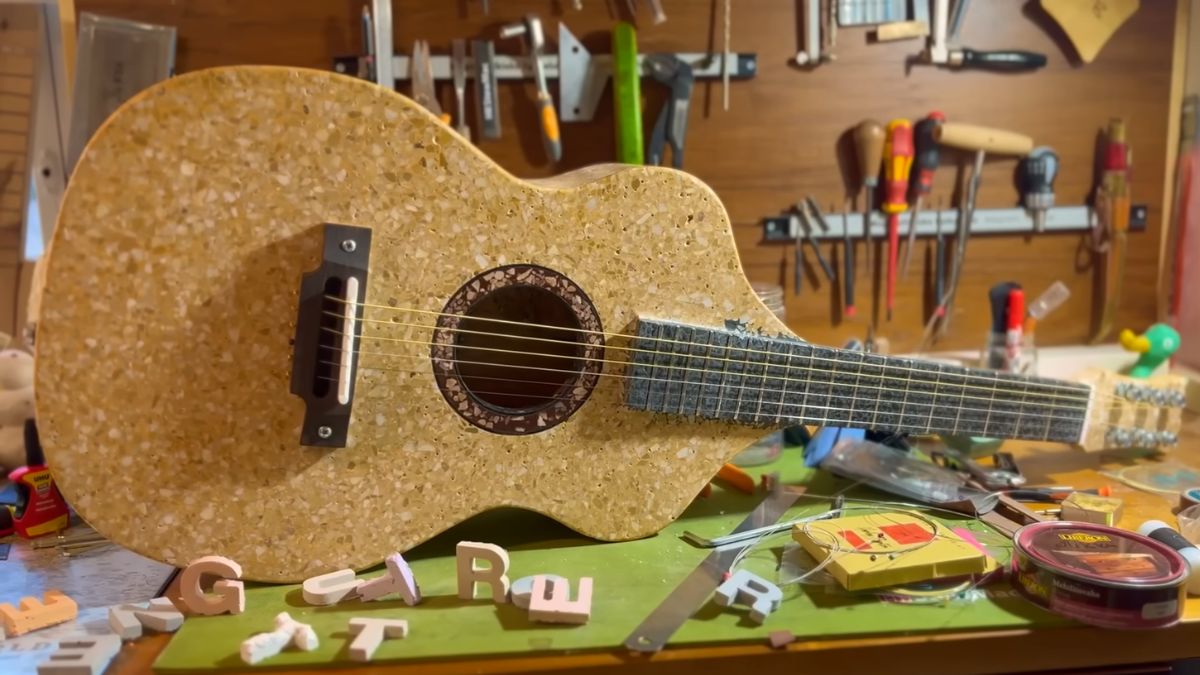Kirk Hammett reflects on Peter Green's legacy: "You could put Oh Well or Green Manalishi up against the first two Sabbath albums"
The custodian of the Greeny Les Paul recounts his recent meeting with Peter to reunite him with the guitar after decades apart

“It was a bit of a shock when I found out [that Peter had died] because he didn’t show any signs of debilitating health. When I saw him [in January 2020], he seemed in perfect health.
“Many times in the past I’ve wanted to meet people and I’ve been too late because they’ve left us for whatever reason, and I’ve always had to deal with a lot of regret after that. So meeting Peter Green and spending time with him on that afternoon really was a lot more important than I realised at the time.
“I felt it was important that I brought Greeny to him so that it came full circle and because he hadn’t seen the guitar since the 70s. At least I got to spend a few hours with him than no time at all.
“It was really nice to see that he was starting to get a lot more attention from a whole new generation of guitar players. It was really important for me to sit down and tell him, ‘Peter, I speak for a lot of guitar players, including myself – generations of guitar players around the world – when I say your influence is just as relevant, if not more relevant, than it was before. Your inspiration is strong to this day. Just know this, Peter.’
Long Live Peter Green ! ⚡️🖤⚡️ photos📸by @rosshalfin 📸 #petergreen Kirk Hammett
A photo posted by @kirkhammett on Jul 26, 2020 at 12:26pm PDT
“He looked at me, shook his head and changed the subject. Which falls in line with his reputation of not being comfortable with that kind of thing. But I knew that it meant something to him because, later on, a friend told me he really enjoyed our meeting.
“Sometimes it’s hard to have outward awareness when you’re struggling with your inner self. And I think that might have been the case with him; he might not have thought his influence and the impression he made is as huge as it really is. It’s the craziest thing when an artist of substantial influence passes away. It’s so bittersweet.
“His songwriting had a huge impact on me. Green Manalishi – that song is so dark. It reaches deep, deep down inside a person and grasps those dark shadows that are in all of us. I hope to be able to compose a song that has a 10th of that vibe.
Get The Pick Newsletter
All the latest guitar news, interviews, lessons, reviews, deals and more, direct to your inbox!
“Green Manalishi sounds like it was written in the swamps of New Orleans at the stroke of midnight under a full moon. But it was probably written by Peter Green in his flat somewhere in London. Those three songs: Oh Well, Black Magic Woman and Green Manalishi influenced hard-rock and heavy metal so much.
“You can draw so many parallels to those three songs. They’re super-dark and I like how they’re themed. I like the subject matter. That heavy atmosphere and that heady subject matter, I believe, influenced hard-rock and heavy metal. It’s comparable to what heavy metal bands were doing at the time.
Even though it sounds like he’s improvising and I know it has to be spontaneous, every note falls in the right place
“You could put Oh Well or Green Manalishi up against the first two Sabbath albums. That was the trend back then. To be heavy was seen as a progressive thing, you know – getting out of the light, airy, psychedelic hippy thing and going heavy. 1969, 1970 and 1971 were all about that.
“To this day, I marvel at how well thought out his guitar lines were. Even though it sounds like he’s improvising and I know it has to be spontaneous, every note falls in the right place and sounds well thought out. His sense of melody and phrasing is all there.
“He nailed that classic Les Paul tone and developed it further than Eric Clapton or Jeff Beck or Jimmy Page did by using that super-creamy neck pickup sound and that out-of-phase tone. It was a sound like no other. And his touch was really spot on and very accurate and controlled. He was just a very masterful player. He had all his techniques mastered in the ways that he wanted them to be mastered for an overall sound and vibe. It was amazing.
“Peter laid down a template for a lot of bands but he often doesn’t get the credit for influencing so many bands that went on to influence people like myself. I’ll give you three examples: Carlos Santana, Judas Priest and Aerosmith – if you listen to any of those bands you will find elements of Peter Green’s Fleetwood Mac. To me, those first couple of Santana albums sound so much like the original Fleetwood Mac.
“The influence on Judas Priest is obvious as they covered Green Manalishi. And Aerosmith, when you really think about it, the format they had was similar to the format Fleetwood Mac had with two very bluesy lead guitar players and blues-based riffs that were really rocking out. I mean, those first couple of Aerosmith albums really remind me of Peter Green’s Fleetwood Mac. And ZZ Top, of course.
I have no plans to retire that guitar at all. As a legacy to Peter Green and Gary Moore I feel it’s important to keep it going and keep it playing so that people can hear it live in real-time and hear it sing
“It’s sad now that [Greeny’s] original owner who helped it along and nourished it and nurtured it is not around any more. All that vibration, Peter Green’s feel and his touch, his molecules and atoms will forever be in that guitar. It’s like a living memory of Peter Green.
“I have no plans to retire that guitar at all. As a legacy to the two people who owned that guitar before me – Peter Green and Gary Moore – I feel it’s important to keep it going and keep it playing so that people can hear it live in real-time and hear it sing.
“So many people love that guitar. I love it, too. That guitar has a lot of love and energy going to it constantly and who am I to get in the way of that? It’s all part of its reason for being and I’m just going to continue enabling that.
“Hopefully, it will go on to make music 100 years from now. I mean, how cool would that be if it ended up with someone else who could play it in front of hundreds of thousands of people? That would be my dream. It really is the people’s guitar.”
Rod Brakes is a music journalist with an expertise in guitars. Having spent many years at the coalface as a guitar dealer and tech, Rod's more recent work as a writer covering artists, industry pros and gear includes contributions for leading publications and websites such as Guitarist, Total Guitar, Guitar World, Guitar Player and MusicRadar in addition to specialist music books, blogs and social media. He is also a lifelong musician.
“There’d been three-minute solos, which were just ridiculous – and knackering to play live!” Stoner-doom merchants Sergeant Thunderhoof may have toned down the self-indulgence, but their 10-minute epics still get medieval on your eardrums
“There’s a slight latency in there. You can’t be super-accurate”: Yngwie Malmsteen names the guitar picks that don’t work for shred


![A black-and-white action shot of Sergeant Thunderhoof perform live: [from left] Mark Sayer, Dan Flitcroft, Jim Camp and Josh Gallop](https://cdn.mos.cms.futurecdn.net/am3UhJbsxAE239XRRZ8zC8.jpg)








